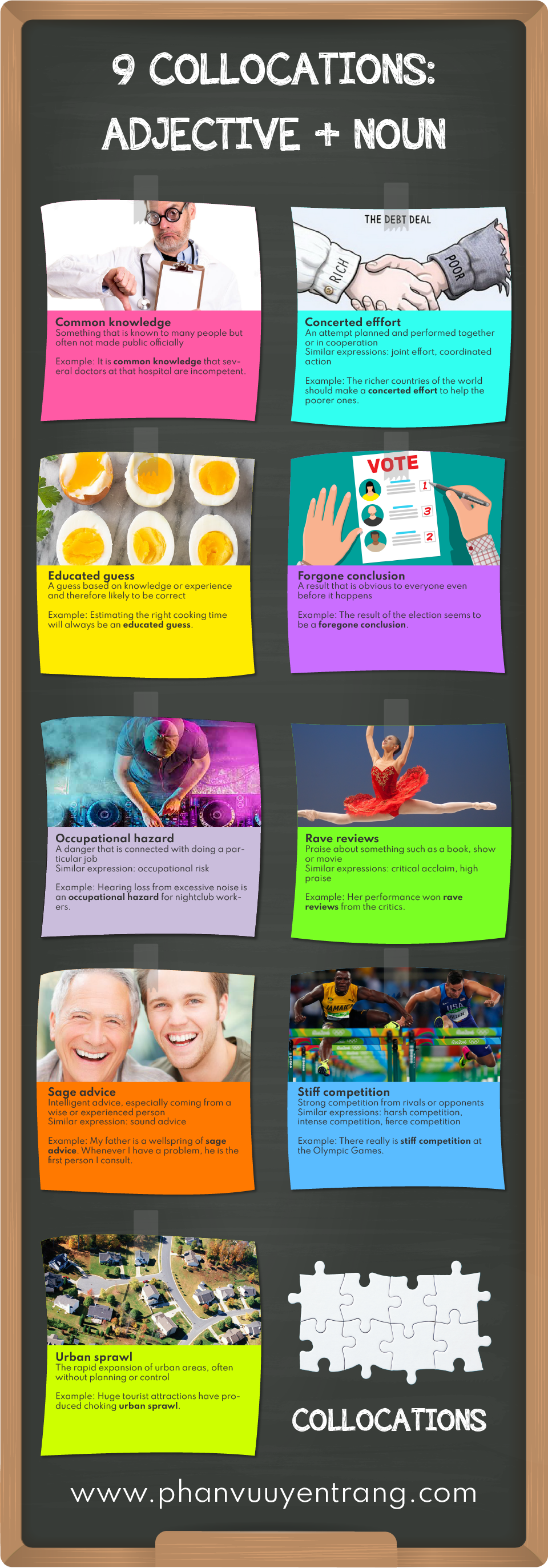What is a collocation?
A collocation is a group of words that often go together. Some collocation examples are do homework (NOT make homework), heavy rain (NOT strong rain), fast food (NOT quick food), to name a few.
Why learning collocations?
- Collocations make it easier to avoid overused or ambiguous words by using a pair of words that fits the context better and has a more precise meaning. For instance, to describe a company that has showed a positive business performance, instead of saying a very good company, you should say a highly profitable company.
- Using collocations helps your English sound naturally like a native speaker.
- You will have alternative and richer ways of expressing yourself.
- It is easier for our brains to remember and use language in chunks or blocks rather than as individual words.
Types of collocations
There are several different types of collocations made from combinations of verb, noun, adjective, and preposition. The most common types are:
- Adverb + Adjective: fully aware, happily married, eternally grateful, highly effective, etc
- Adverb + Verb: negatively affect, completely destroy, firmly believe, totally agree, etc
- Adjective + Noun: strong coffee, heavy traffic, balanced diet, easy money, etc
- Noun + Noun: birth certificate, action movie, comfort zone, case study, etc
- Verb + Noun: pay attention, keep records, commit suicide, gain access, etc
In this very first post of the Collocation series, I’d like to focus on the adjective and noun combination. The 9 collocations I pick out here aren’t the most popular, but I believe they’re useful in your academic writing and speaking.
Enjoy!

References
7ESL https://7esl.com/collocations/
English Club https://www.englishclub.com/vocabulary/collocations.htm
Online Cambridge Dictionary https://dictionary.cambridge.org
Online Collins Dictionary https://www.collinsdictionary.com




0 Comments